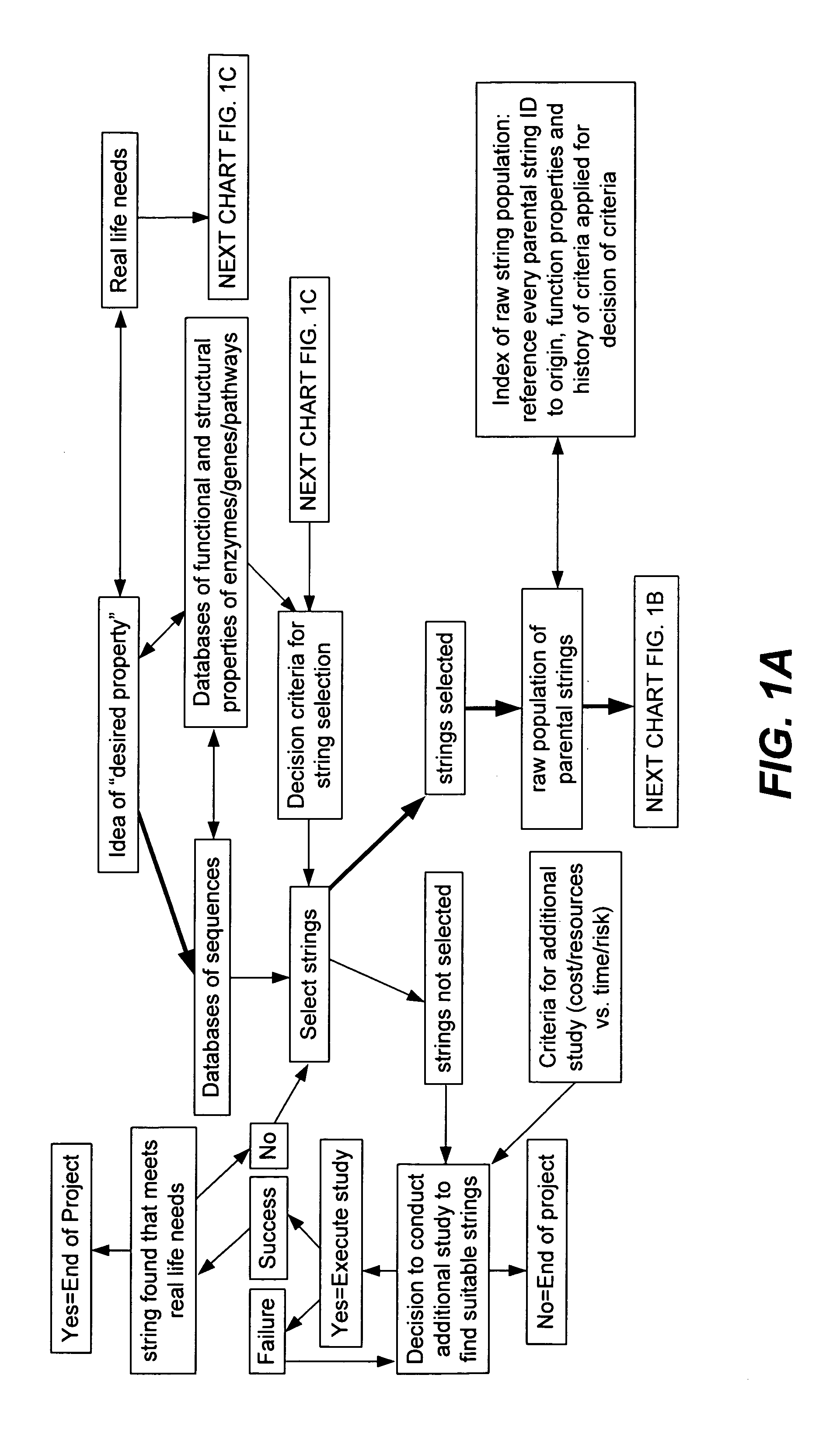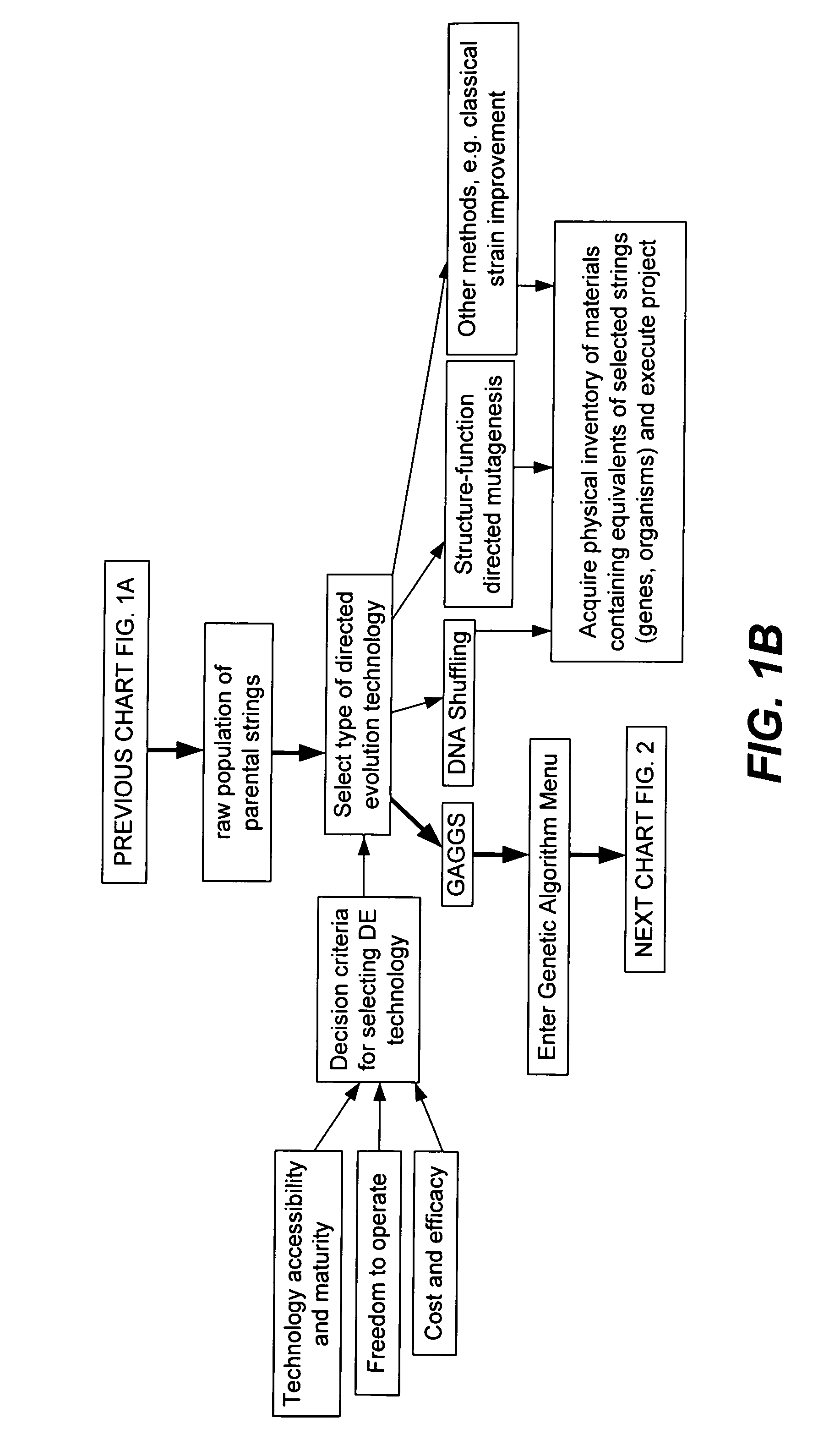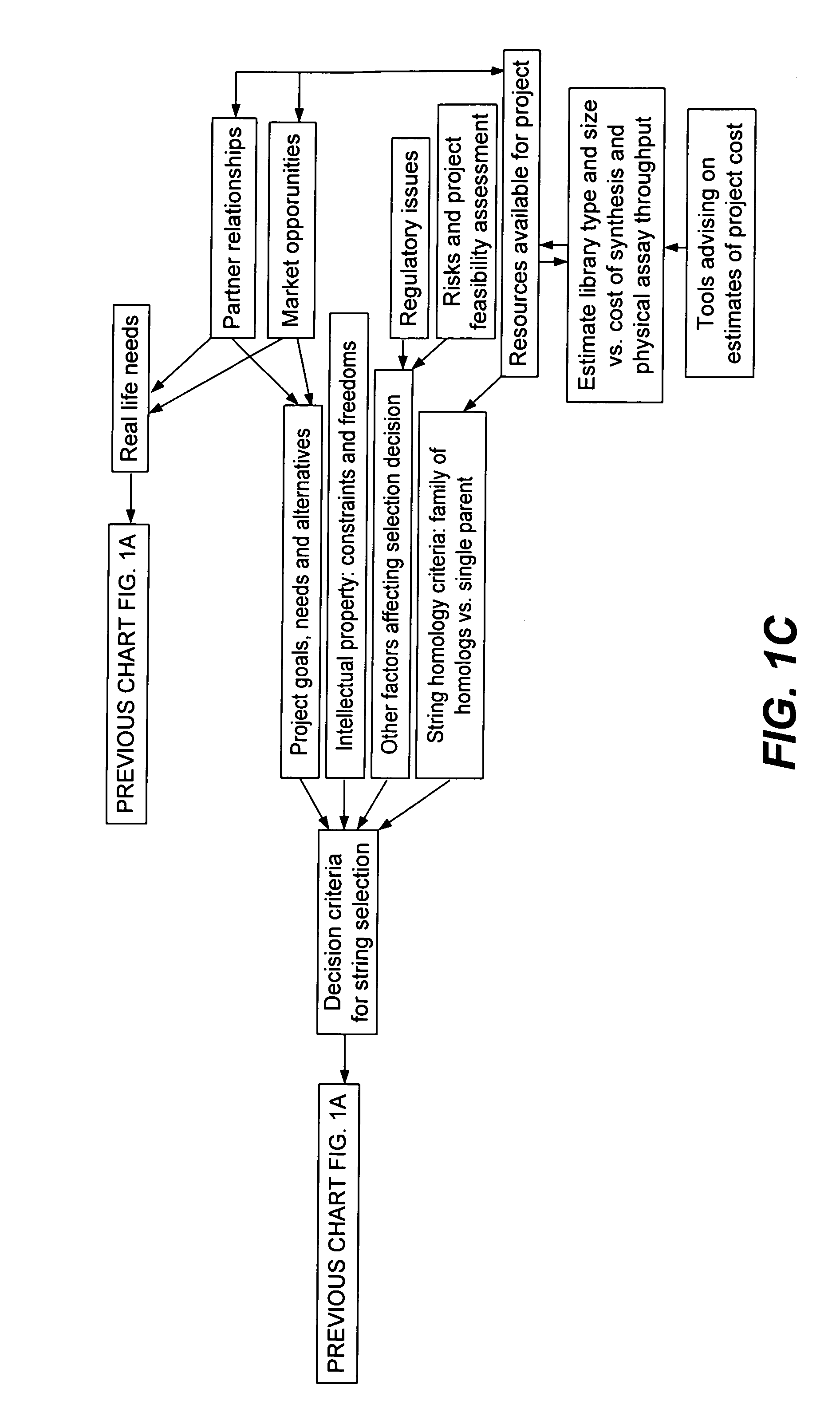Methods for making character strings, polynucleotides and polypeptides having desired characteristics
a polynucleotide and polypeptide technology, applied in the field of gene expression algorithms, can solve problems such as increasing the length of oligonucleotides
- Summary
- Abstract
- Description
- Claims
- Application Information
AI Technical Summary
Problems solved by technology
Method used
Image
Examples
example processing steps
for Reverse Translation and Oligo Design
[0163]Automatic processing steps (e.g., performed in a digital system as described herein) that perform the following functions facilitate selection of oligonucleotides in synthetic shuffling techniques herein.
[0164]For example, the system can include an instruction set which permits inputting of amino acid sequences of a family of proteins of interest of interest.
[0165]These sequences are back-translated with any desired codon usage parameters, e.g., optimal usage parameters for one or more organism to be used for expression, or to optimize sequence alignments to facilitate recombination, or both. For example, codon usage can be selected for multiple expression hosts, e.g. E. coli and S. cerevisiae. In some cases, simply optimizing codon usage for expression in a host cell will result in making homologous sequences more similar, as they will lose their natural species codon bias.
[0166]Sequences are aligned, and a consensus sequence is produce...
example 1
Decision Tree for Example GAGGS Process
[0347]A set of flow schematics which provide a general representation of an exemplary process of Directed Evolution (DE) by GAGGS are enclosed (FIGS. 1–4). FIG. 1 provides an example decision making process from an idea of a desired property to selection of a genetic algorithm. FIG. 2 provides a directed evolution decision tree from selection of the genetic algorithm to a refined library of parental character strings. FIG. 3 provides example processing steps from the refined parental library to a raw derivative library of character strings. FIG. 4 processes the raw character strings to strings with a desired property.
[0348]Generally the charts are schematics of arrangements for components, and of process decision tree structures. It is apparent that many modifications of this particular arrangement for DEGAGGS, e.g., as set forth herein, can be developed and practiced. Certain quality control modules and links, as well as most of the generic ar...
example 2
Modeling Cost Estimates
[0349]Use of degenerate synthetic oligos with very limited degree / low level of positional degeneracy (under 0.01–5% per position) can offer a very substantial cost saving in building those libraries which incorporate substantial mutagenicity. For PCR assembly gene synthesis, however, representation of all of the crossover events between parental entries uses synthesis of two dedicated oligos per simulated crossover event.
[0350]However, as will be apparent from the examples below and from the combinatorial nature of nucleic acid evolution algorithms, even building very large (109–1010) gene libraries for physical screening uses less than 103 individual 40-mer oligos for evolution of a family of typical genes of ˜1.6 kb size.
[0351]Several typical examples below provide examples of costs of gene synthesis components in GAGGS, where the cost calculation is based arbitrarily at $0.7 per base (for a 40–50 nmol quantity, which is adequate for gene reassembly procedur...
PUM
| Property | Measurement | Unit |
|---|---|---|
| distance | aaaaa | aaaaa |
| energy | aaaaa | aaaaa |
| length | aaaaa | aaaaa |
Abstract
Description
Claims
Application Information
 Login to View More
Login to View More - R&D
- Intellectual Property
- Life Sciences
- Materials
- Tech Scout
- Unparalleled Data Quality
- Higher Quality Content
- 60% Fewer Hallucinations
Browse by: Latest US Patents, China's latest patents, Technical Efficacy Thesaurus, Application Domain, Technology Topic, Popular Technical Reports.
© 2025 PatSnap. All rights reserved.Legal|Privacy policy|Modern Slavery Act Transparency Statement|Sitemap|About US| Contact US: help@patsnap.com



